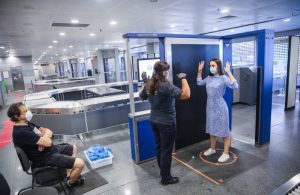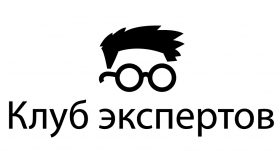
Ukraine International Airlines (UIA) has installed the first laboratory for PCR and antibody tests at Boryspil International Airport (Kyiv region).
UIA President Yevhen Dykhne said on Facebook that now the laboratory will be used to test UIA crews, however, it will also be able to provide for the needs of departing or arriving passengers, if the arrival country requires a corresponding certificate.
“For example, Tunisia, with which air traffic will soon be restored, allows free border crossing with the availability of a PCR test,” he added.
Dykhne said that a PCR test currently has the highest specificity and sensitivity, in contrast to rapid tests. The material for analysis is a throat swab, and the analysis takes three hours. At the same time, a possible simultaneous loading of the laboratory is 96 samples.
In addition, he said the laboratory also provides for the option of an urgent PCR test of one individual sample within 40 minutes and testing for antibodies to SARS-CoV-2, which allows to determine the earlier infection and the presence of immunity (the test material is blood from a vein, the speed is 86 tests per hour).

The Expert Club jointly with Doctor of Biological Sciences Sviatoslav Leonov launch a series of videos about healthy and harmful nutrition.
Nowadays unhealthy nutrition is one of the main risk factors for public health. A major study of mortality causes, which was conducted by researchers in 2017, showed that every fifth death in the world is caused by high consumption of salt, transfat, sugar, overconsumption of sweet carbonated beverages and red meat. Meanwhile, healthy food like whole grain, fruit, seeds and nuts are gradually displaced by harmful products.
In 2017, more than 1.5 million people in the world died of diseases connected with diarrhea caused by poor nutrition. Food poisoning and unhealthy eating in general have been among the top ten causes for deaths for a long time, and in some countries – among the top three causes.
The Expert Club jointly with Doctor of Biological Sciences Sviatoslav Leonov start a project on healthy nutrition in modern society. It is aimed at determining the main risk factors related to unhealthy nutrition, discussing myths and stereotypes, collecting expert opinions on the subject. Initially, the project will have the format of educational mini-interviews with infographics. In the future, we are planning to create a discussion platform for specialists with various points of view.
The pilot video about the main unhealthy food products and harmful food additives is already available on the Expert Club YouTube channel:

The Ministry of Infrastructure of Ukraine, the Ministry of Digital Transformation, the State Automobile Roads Agency of Ukraine (Ukravtodor), the National Commission for the State Regulation of Communications and Informatization (NCCIR) and Ukrainian Internet associations signed a memorandum of cooperation in the development of broadband Internet access on roads.
As reported on the website of the Ministry of Infrastructure on Friday, with the memorandum, all of its parties will cooperate in the implementation of smart transport systems and their arrangement on public roads of national importance.
In particular, Ukravtodor, when conducting procurement for the overhaul of these roads, will include provisions for the development of broadband Internet access in the customer’s requirements, as well as the infrastructure necessary for the cable telecommunication lines.
“We want that during the overhaul of these roads, one of the requirements for the customer is the development of the required infrastructure for the cable telecommunication lines, so that there is broadband access to the Internet. This will allow the introduction of smart transport systems, which are very important to increase transport safety and prevent possible accidents, traffic monitoring and efficient management of traffic flows,” the press service of the Ministry of Infrastructure said, citing minister Vladyslav Krykliy.
National bank of Ukraine’s official rates as of 19/06/20

Source: National Bank of Ukraine

Moody’s Investors Service has upgraded corporate family rating (CFR) and probability of default rating (PDR) of Metinvest B.V. (Metinvest) to B2 from B3. Concurrently, the rating outlooks on Metinvest’s ratings were revised to stable from positive, Moody’s has said in a press release.
The stable outlook on Metinvest’s ratings is in line with the stable outlook on Ukraine’s sovereign rating, and reflects Moody’s expectation that the company will sustain strong operating and financial performance for their rating level and will maintain healthy liquidity.
Metinvest has fairly broad goals of reducing environmental footprint and introducing more efficient energy-saving technologies in order to meet the best global standards in this area. In 2019, Metinvest spent around $384 million (2018: $263 million) in environmental projects, including $155 million of capital spending.
“Being a vertically integrated company, Metinvest takes responsibility for the whole production chain and continues to improve the environmental footprint of its segments,” Moody’s said.
The corporate governance risks are mitigated by the fact that Metinvest demonstrates a good level of public information disclosure, including a track record of regular public reporting of audited consolidated financial statements prepared in accordance with IFRS as well as quarterly operational reporting.
Metinvest Group is a vertically integrated group of steel and mining companies that manages every link of the value chain, from mining and processing iron ore and coal to making and selling semi-finished and finished steel products. It comprises steel and mining production facilities located in Ukraine, Europe and the United States, as well as a sales network covering all key global markets.